As the May 20 inauguration of William Lai as Taiwan’s next president approaches, prepare for an anticipable wave of news analyses predicting escalating tensions and potential conflict on the horizon. Lai famously referred to himself as a “pragmatic worker for Taiwan independence.” And since Beijing has threatened to go to war to prevent Taiwan independence, so the thinking goes, Lai’s inauguration could spell impending trouble.
Such analysis is easy to write and almost certainly wrong. Lai is not a wild-eyed zealot with a one-track-minded focus on Taiwan independence. He is a professional politician who has organized his career around becoming Taiwan’s president. Now that he has ascended to Taiwan’s top elected position, he will want to win reelection. To do so, he almost certainly will need to tack to the center of Taiwan’s political spectrum rather than cater to the wishes of a small minority of Taiwan voters who favor throwing caution to the wind in service of Taiwan independence or unification. Indeed, less than 6 percent of Taiwan’s voters support “the immediate pursuit of independence from, or unification with, the People’s Republic of China.”
The Taiwan people elected Lai with a weak mandate. He garnered 40% of the popular vote, in contrast to the 56% and 57% that his predecessor gained in the 2016 and 2020 elections, respectively. If not for the fact that Taiwan’s 2024 presidential election was a contested three-way race, Lai may not have prevailed. Lai’s political party, the Democratic Progressive Party (DPP), lost the Legislative Yuan. Its main rival, the Kuomintang (KMT), secured the most legislative seats, albeit short of an absolute majority.
Importantly, President-elect Lai lost a significant share of Taiwan’s youth vote. Even though Lai himself is young and charismatic, he represented continuity in the eyes of many Taiwan youth voters who had grown disillusioned during the past eight years of DPP rule. Many Taiwan youth feel crushed by the weight of limited job opportunities, out-of-reach housing costs, and grim prospects for their future. For these young voters who will be increasingly decisive to the outcome of Taiwan’s next presidential election, “more of the same” is not an appealing proposition.
Thus, Lai’s principal task over the next four years will be to improve living conditions and life prospects for Taiwan’s rising generation of voters. To do so, Lai will need to drive social and economic reforms through Taiwan’s divided legislature. He also will need to make progress in addressing Taiwan’s energy challenges and bolstering Taiwan’s technology sector in an increasingly competitive global marketplace. This will be his best—and perhaps only—path to reelection.
The other key question voters will ask in their next election is who would keep Taiwan safe in the face of China’s growing threat. Taiwan’s voters are aware of rising security risks in the Taiwan Strait, but they are not panicking. Lai will want to keep it that way. He will benefit by showing steadiness and the capacity to garner greater global support for Taiwan’s security. This is what Taiwan’s voters want. Over 80% of Taiwan’s voters favor preserving the status quo with China.
Lai’s presumptive political rivals in the next presidential election will argue that they represent a safer set of hands for managing cross-Strait tensions. Beijing also will have incentive to augment their arguments. Beijing would prefer for Lai and his political party to lose the next election in 2028; Chinese leaders judge that Lai and his political party do not present an opportunity to draw cross-Strait relations closer and pull Taiwan toward unification with China. China’s leaders certainly recognize that the more Lai becomes perceived as reckless and dangerous, the less likely he will be able to hold on to power in the future. Beijing can reliably be expected to try to paint Lai as pushing Taiwan dangerously close to the brink of war.
Beware of accepting Beijing’s propaganda as reality, though. In reality, Lai has pledged continuity of policy on cross-Strait relations with Taiwan’s outgoing president, Tsai Ing-wen. Tsai is widely credited internationally for charting a principled, steady, pragmatic course on cross-Strait relations. Indeed, these attributes were definitional to Tsai’s success in attracting greater global support for maintaining cross-Strait peace and stability.
Lai has kept nearly all of Tsai’s closest advisors on in his administration. Tsai’s foreign minister, Joseph Wu, will serve as secretary-general of Taiwan’s National Security Council (NSC). Tsai’s NSC secretary-general, Wellington Koo, will become minister of national defense. Tsai’s former trusted envoy to the United States, Bi-Khim Hsiao, has been elected vice president. Taiwan’s current representative in Washington, Alexander Yui, is a highly respected career diplomat who will remain in place to provide continuity. In other words, Taiwan’s senior-most officials in Lai’s administration are experienced and know how to manage the situation.
To be sure, Beijing will make life difficult for Lai. China’s leaders do not want Lai to succeed. They will look for opportunities to drive wedges between Taiwan and its key partners, including the United States, Japan, Australia, India, and European powers. Beijing will want to scare Washington and others into thinking that Lai’s statements and actions are evidence of his underlying ambition to pursue de jure independence. They will seek to apply pressure on the United States to “rein in” Lai, lest there be conflict in the Taiwan Strait.
Beijing also will seek to sow divisions within Taiwan, including by propping up Lai’s political rivals while undermining Lai. Beijing will use incidents as opportunities to ratchet up military pressure around Taiwan, just as they did after then-Speaker of the House Nancy Pelosi’s August 2022 visit to Taiwan. Beijing’s use of incidents to create new conditions around Taiwan will be a central feature of China’s approach over the coming years. It allows China’s leaders to foster an image of directional progress in shrinking Taiwan’s space for operating independent of Beijing’s preferences.
China likely also will increase military pressure on Taiwan in the coming years. China clearly is investing significant resources in military options for resolving cross-Strait differences. China’s expanding military capabilities will be felt most acutely in Taiwan. Even so, the United States government continues to assess that conflict in the Taiwan Strait is “neither imminent nor inevitable.”
In other words, Lai inherits a serious set of challenges. He will need to govern with discretion and finesse, rather than bold strokes, if he wants to advance an ambitious domestic agenda and continue attracting global support for Taiwan’s security. Based on my own experiences with Lai dating back to his time as mayor of Tainan, I am confident he understands this reality.
Some analysts will draw analogies between Lai and disgraced former president Chen Shui-bian. Like Lai, former president Chen vowed steadiness in his approach to governance. Chen also confronted a divided legislature and a recalcitrant Beijing. After two years of being stonewalled in his efforts to govern from the middle, Chen pivoted to stoking Taiwan nationalism and catering to his “deep Green” base of supporters to get reelected president in 2004. Although politically expedient for Chen, the episode was deeply damaging for Taiwan’s security. Chen’s persistent prodding forced Washington to publicly articulate the limits of its support for Taiwan and its security.
Lai knows this history and has shown no interest in repeating it. China’s military strength is far greater today than it was during Chen’s tenure. And Washington’s willingness to articulate limits in its support for partners who exhibit disregard for American security interests is real.
Lai deserves to be judged on his own merits with an open mind. He will make mistakes. All leaders do. But Lai is not the caricature that Beijing wants to create of him. This bears reminding as Lai’s inauguration approaches on May 20.
The Brookings Institution is committed to quality, independence, and impact.
We are supported by a diverse array of funders. In line with our values and policies, each Brookings publication represents the sole views of its author(s).


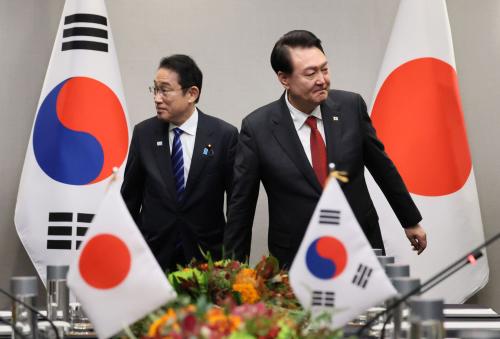
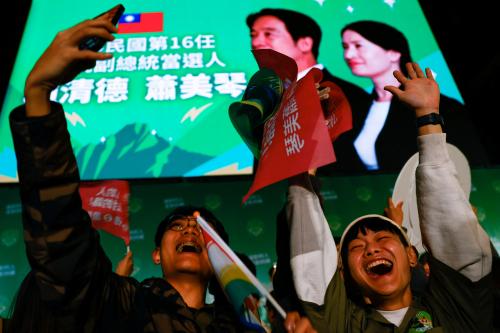
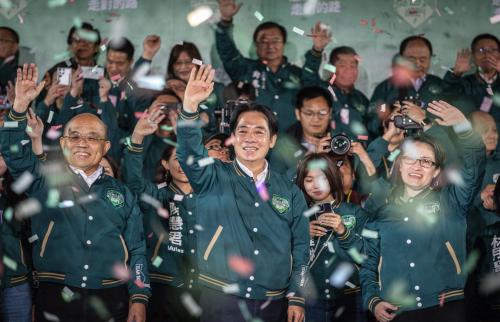

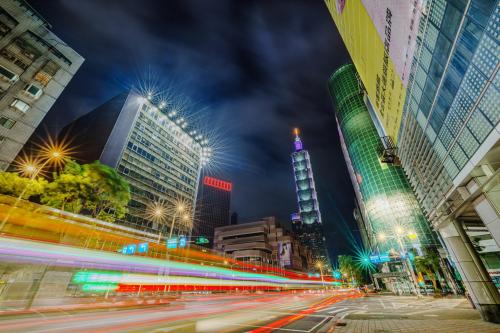
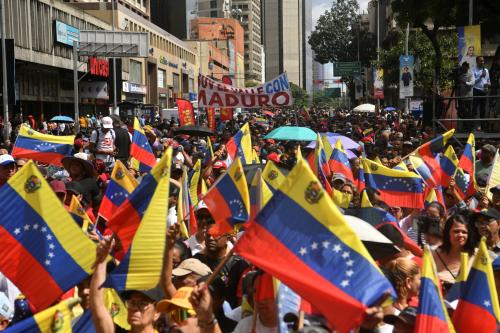
Commentary
Beware forecasts of doom for Taiwan under Lai
May 14, 2024